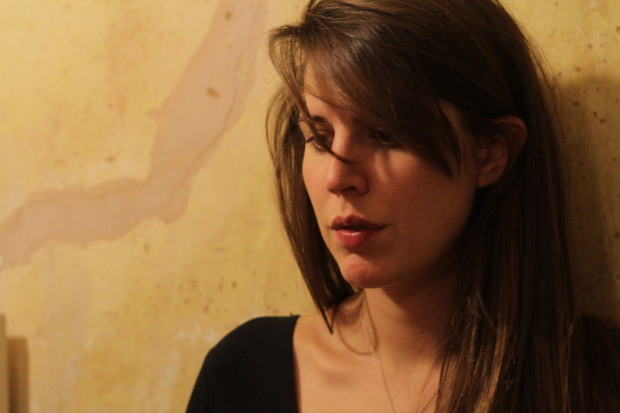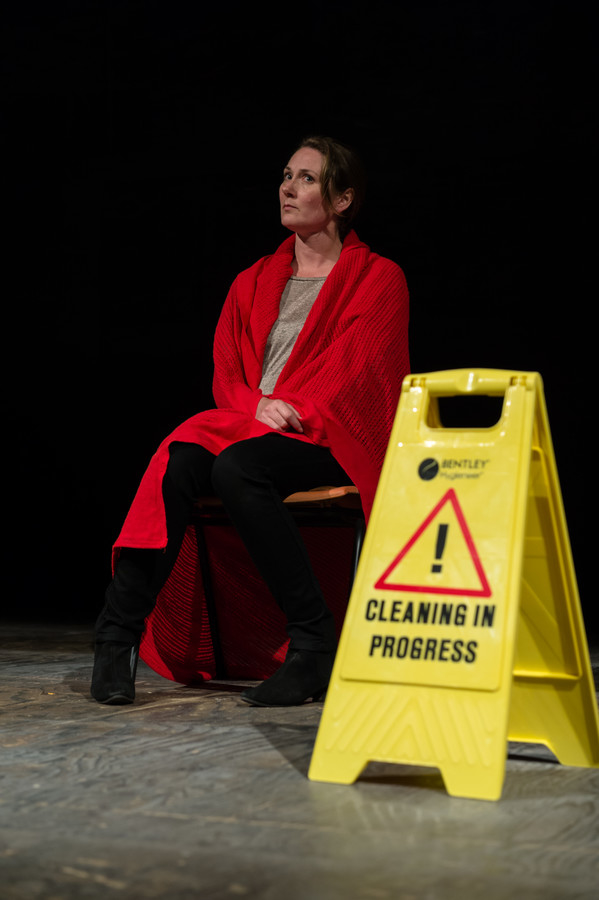Alice Birch: I wrote Revolt. She Said. Revolt Again. in three days straight
The playwright Alice Birch talks about Katie Mitchell, working in the US and what she’s looking forward to at the Edinburgh Festival

© Georgina Ower
Since fringe venue Theatre503 first staged her work in 2011, Alice Birch has become a major emerging voice and one of the most exciting playwrights working at the moment. The last 14 months have been busy for her. Her piece with theatre company Rash Dash, We Want You To Watch, opened at the National Theatre’s Temporary Venue, she collaborated with one of her heroes Katie Mitchell on Ophelia’s Zimmer at the Royal Court and the Schaubuhne and the RSC is reviving their production of her play Revolt. She Said. Revolt Again which was a huge success in 2014 and transferred to New York this year. When we meet at the RSC's London offices, she's softly spoken and measured in her answers and clearly delighted that the company and Erica Whyman are revisiting her work.
What made you write Revolt. She Said. Revolt Again.?
The RSC commissioned four writers, four women, back in 2013 to respond to the provocation that well behaved women seldom make history. The phrase made me quite angry. I think because I couldn’t really figure out what that meant. I tried to read a really broad range of feminist literature, so things like Kat Banyard and Caitlin Moran’s book, and then things at the more radical end so lots of Andrea Dworkin and crucially this book called The Scum Manifesto by Valerie Solanas.
She was the person who shot Andy Warhol?
Yes, The Scum Manifesto is vile, I mean it’s really horrible. And it’s very hard to remove the piece from her – she had a very troubled existence. But I liked the word manifesto and I thought it was interesting to think about in terms of a theatrical form. I also liked how unapologetic it was. So all of that was in the mix for Revolt, but I was putting off writing it, and then I wrote it in about three days straight.
Is that how you normally write your plays?
I tend to sit on it for a very long time. I still write in the middle of the night. I find that there are some brilliant writers who won’t write a word until they’ve got a plan and I am definitely not one of those writers. But it is there somewhere, I had the form in my head [before I began to write it].
Do you do lots of rewrites?
Yes, I always rewrite a play. I write the whole thing out again even if I don’t change a word because rhythm is so important.

© TOPHER MCGRILLIS
People have said Revolt. is about language…
Yes, it is mostly. It’s quite hard to talk about, it’s quite slippery, I am particularly bad when talking about my own plays. I wanted it to be funny and quite playful. I have always wanted to be a writer because I like stories, I think that’s really the spine of it still. I don’t know that I set out to write something political.
Are we moving forward in theatre with staging work directed by and written by women?
Yes, I do think so, I’m not sure I would have said yes a year ago. The Royal Court is quietly programming more and more women and having more female directors and not doing it in a ‘this season is about women’, it’s just happening. Rufus Norris at the National has done something similar. I think you want it to happen in loud ways, but also quietly, so 'people are writing plays some of them are women'.
You are revisiting the play, have you done any new work on it?
Since it opened it has been in New York and I did change a couple of words for the American audience. They obviously didn’t know what Sainsbury’s was. It had a reading in Copenhagen recently, and it’s really mind-bending to watch a play that, for me, is so much about language, in another language. I think if I had written the play in Danish, or even in American, it would be a completely different beast. But I haven’t changed anything this time round.
How did they deal with it in the US?
The actors were great, really willing and also frightened. Everyone who has ever done this play has always said to me that they are quite scared, which I’m always a bit surprised by. The play suggests an openness, and it asks actors to be themselves a little bit too. There are quite a few moments in the play where I write that the actor forgets their lines, for example. I think that can be quite unusual in New York theatre culture.
You got good write ups in New York…
I try to just scan them, so you know what’s out there. Often a review is heartbreaking either way, if it is negative or positive.
Why is that?
I just don’t think they are for me to read. Maybe that’s a really arrogant thing to say, and maybe ideally it’s a conversation [with reviewers] and you learn things, but I just think I’m still too close to the play to be objective. There’s always the thought that more people will read the review than see or read the play.
Had you always wanted to be a writer?
I don’t think I knew what a playwright was. No one is in the theatre in my family. But I really loved theatre. I wrote a panto when I was about seven with a rap and everything. I went to the Royal Court when I was 15 or 16 and then I applied to do work experience in the literary department there.
Was it eye-opening?
I remember reading a play sent in by a young writer, I don’t know who, and it had quite a graphic sex scene in the middle and I remember saying: "you could never put this on". And they sat me in the corner with a stack of plays by Sarah Kane and said: "Have a look at these".
How did working with Katie Mitchell come about?
I had seen loads of her work and someone had very kindly, or stupidly, given me her email address and I wrote to her about five or six years ago to say: "You’re great". She was in the middle of a rehearsal process and she had lunch with me. She was really nice and told me a lot about her work. I didn’t hear anything else – I didn’t expect anything, I just wanted to meet her and hear about how she made her work. And then a few years ago she rang me out of the blue and asked if I wanted to work on this thing for the Royal Court and Schaubuhne. It was absolutely great and I’m working on something else for the Schaubuhne about Orpheus and Eurydice. I’m adapting a work by Elfriede Jelinek.
Revolt is coming to Edinburgh, will you go up?
I am there for 24 hours. And trying to cram in as much as possible.
Anything you’re desperate to see?
Rash Dash’s Two Man Show looks brilliant, and there’s lots of stuff I’m going to miss as well. Al Smith’s play at the Traverse, and I'm going to miss The Team's new show, Daniel Kitson is all sold out. But it’s totally totally nuts that Revolt is going to be on at the Traverse. I remember my mum taking me to see things there, before I knew what a playwright was, it’s so exciting.
Revolt. She Said. Revolt Again. runs at The Other Place as part of Making Mischief until August 13. It then runs at the Traverse in Edinburgh between 17 and 28 August. The show then runs at Shoreditch Town Hall from 31 August to 17 September.












